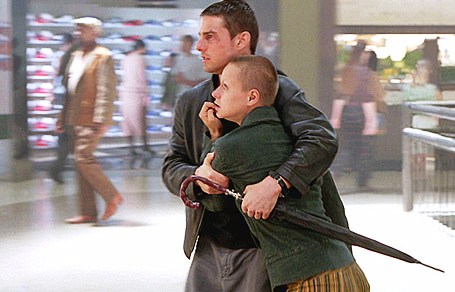Minority Report is a film by Philip K. Dick that explores the concept of distributing consequences to someone before their crime ever takes place based on foreknowledge provided by what the film refers to as “precogs”. The film, set in 2054 Washington, D.C., presumes that any intended act in the future that does harm to society in any capacity is a crime.
The “precogs, three physics, uses their gift of foretelling the future to determine who, where, when, and at what time someone will commit the crime. The police unit, led by Tom Cruise, then seeks out the pre-determined perpetrator and prosecutes them for the crime they haven’t committed “yet”. According to Terri Murray, in the article Our Post-Moral Future?, a crime is meaningless until it is done, and is a crime precisely because it is done therefore redefining the meaning. Murray also argues that the definition of a criminal is retrospective because the freedom that allows a criminal to choose whether or not to commit the crime is the reason he or she is defined a criminal should they choose to proceed with the act. This is an important concept that isn’t explored in Minority Report.
The precogs foresee the crime and the police unit acts upon it. Their intentions are to prevent murders, however, they are stripping away someone’s inalienable right, which is free will. What viewer’s should ask themselves after watching this film is at what does a police unit’s obligation to capture criminals infringe upon a person’s right to have private thoughts.


